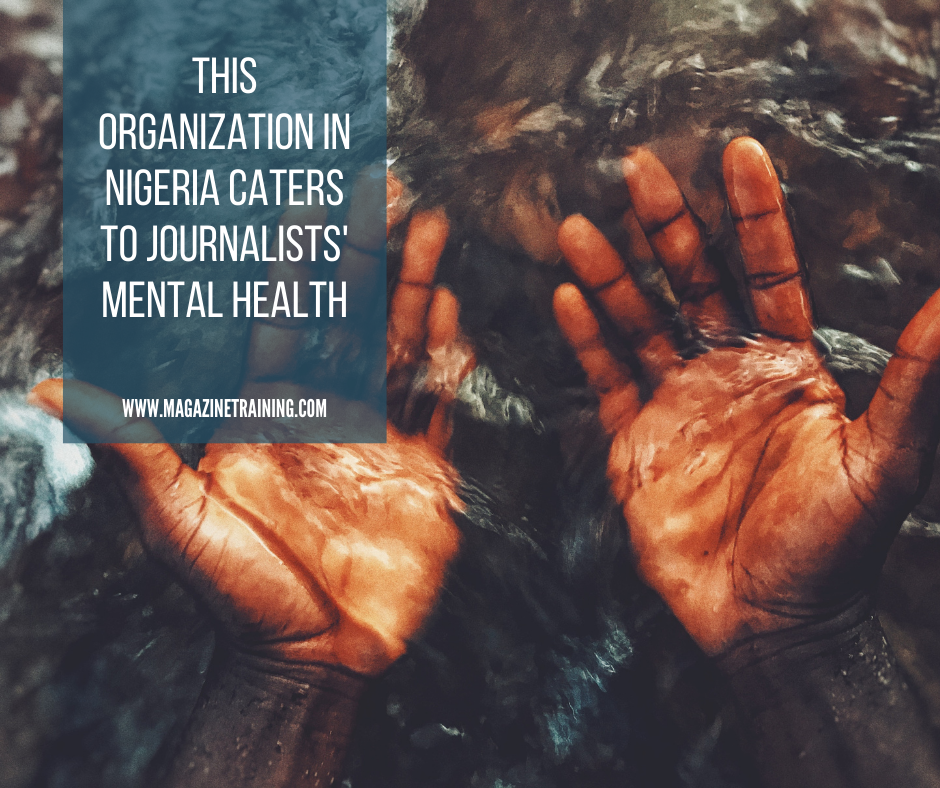
Last August, journalist Alfred Olufemi traveled for a story to the state of Plateau in central Nigeria, which has been a hotbed of conflict in recent years.
Violence between the nomadic Muslim Fulani herders and Christian farmers in the state has claimed more lives than the Boko Haram jihadist insurgency in northeast Nigeria, and gang activity in the northwest. The violence has disrupted rural communities and threatened the country’s stability.
The week he returned home from Plateau, Olufemi pulled back from his routine social life as he struggled to get the victims’ stories of sorrow and helpless rage out of his mind. “The psychological issues sometimes can really be a thing,” he said. “I became withdrawn from activities after visiting Jos. I guess it was a result of my interactions with [the] victims. I just had to take some days off the copy. On some occasions, it can be a result of burnout.”
Mental health treatment is beyond the reach of the average Nigerian, and journalists like Olufemi are no different. One in four Nigerians — some 50 million people — suffer from mental illness. Yet there are only eight psychiatric hospitals in the country. Many citizens, too, cannot afford help when they need it, so they find other ways to cope.
“Since it was something I could handle, I only consulted friends and I was back to my normal state of mind. After all, seeking therapy costs money and I cannot afford it,” said Olufemi.
His case is not unique. Many reporters have been exposed to traumatic work conditions and have dealt with anxiety, depression, burnout and post-traumatic stress disorder (PTSD), as a result. The global pandemic has only exacerbated this situation. A study published by the International Center for Journalists and Columbia University’s Tow Center for Digital Journalism showed that 70% of 1,406 respondents, across 125 countries — including Nigeria — “rated the psychological and emotional impacts of dealing with the COVID-19 crisis as the most difficult aspect of their work.”
Many newsrooms in Nigeria, too, don’t prioritize their reporters’ mental health, noted Olufemi. “Nigeria is a haven of traumatizing events, and it takes strong-heartedness to survive. Employers should look at ways to incorporate therapy sessions into the schedule of their reporters, even if it is [just] once a month.”
Addressing the issue
The Centre for Journalism, Innovation and Development (CJID) in collaboration with Free Press Unlimited (FPU) launched psychotherapy sessions under its ‘No News Is Bad News’ program for journalists in Nigeria and Ghana to assist reporters and media workers who are exposed to traumatic events.
“We want to promote better mental health and mindfulness among journalists. The nature of the work environment for journalists, where they must break the news, stay ahead of the curve and retain readership, can foster anxiety and lead to an array of psychological challenges,” said Stephanie Adams, a program officer at CJID. “The constant exposure to trauma and disturbing content — photos and videos — encountered while covering violence, tragedies, natural disasters, crimes and murder put journalists at a higher risk of developing mental issues such as PTSD.”
by Abiodun Jamiu, International Journalists’ Network
Photo by Hanniel Yakubu on Unsplash
Related posts
Magazine Training International’s mission is to encourage, strengthen, and provide training and resources to Christian magazine publishers as they seek to build the church and reach their societies for Christ.

